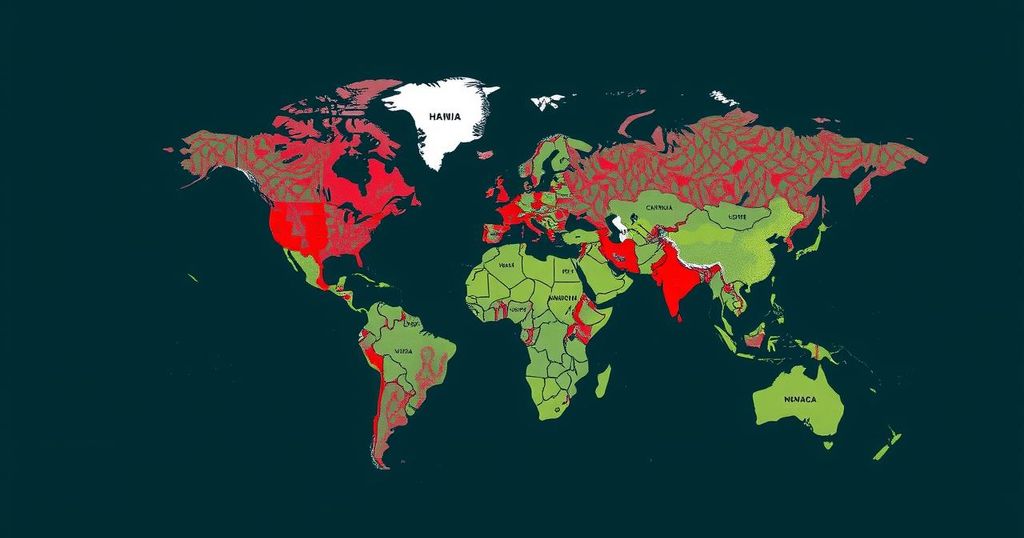The COP29 climate summit in Baku has extended negotiations regarding climate finance commitments, with developed nations proposing $300 billion while developing nations, including Pakistan, require at least $1 trillion annually to meet climate goals. The dialogues reveal stark disagreements over responsibilities and financial support, with many nations feeling undervalued and inadequately supported in the fight against climate change.
The ongoing COP29 climate summit in Baku has entered an extended negotiation period past its original deadline, reflecting significant tensions between the Global North and South regarding climate finance. The primary contention rests on establishing a New Collective Quantified Goal that developed nations are reluctant to commit to, despite their historical responsibility for greenhouse gas emissions. Wealthy countries have proposed a climate finance increase to $300 billion, but this falls far short of the $1 trillion annually needed to meet the targets set by the Paris Agreement by 2030. Developing nations, including Pakistan, face profound financial shortfalls, with Pakistan alone estimating a climate finance gap of $348 billion by 2030. The report indicates dissatisfaction among many attendees, with some delegates, dissatisfied by the negotiations, considering withdrawal from discussions.
Disagreements persisted over responsibilities for climate finance, with European nations asserting that emerging economies should also contribute. However, the legacy of past emissions weighs heavily on the developed countries. The recent election of a U.S. president, who publicly doubts the seriousness of climate change, has further complicated negotiations. Pakistan’s negotiator, Arif Goheer, expressed disappointment over tentative agreements, emphasizing the necessity for grant funding instead of loans to prevent further economic strain. Pakistan has proactively addressed its climate challenges through initiatives like the National Climate Finance Strategy and Recharge Pakistan. Nevertheless, the implementation requires considerable international financial support and streamlined access to funds despite potential bureaucratic hurdles.
As debates continue among nations and representatives, it is vital for the global community to understand that climate finance transcends numerical goals; it embodies the urgent need to empower vulnerable nations to withstand and adapt to climate crises they did not instigate. Currently, the gap between commitments from wealthy nations and the realities of climate change mitigation remains disheartening and unresolved.
Climate finance is a crucial component of international efforts to address climate change, particularly in supporting vulnerable nations that have contributed minimally to the causes of climate disruptions yet bear the brunt of their impacts. The COP conferences aim to facilitate dialogue and agreements for financial commitments from developed to developing nations. Nevertheless, negotiations often reveal stark disparities in perspectives and priorities, particularly surrounding historical emissions and responsibilities for financial contributions. With increasing climate emergencies affecting developing countries, ensuring adequate funding and sustainable financing mechanisms is vital to advancing global climate goals. Furthermore, the geopolitical landscape, including shifts in leadership in major economies, plays a significant role in shaping climate policies and financial commitments.
In conclusion, as the COP29 climate summit continues, it highlights the ongoing struggles between developed and developing nations regarding climate finance commitments. The requests for substantial financial support from vulnerable countries, such as Pakistan, contrast sharply with the limited offers from wealthier nations. The necessity for collaboration and shared responsibility is underscored by the urgent need to secure resources that empower these nations to confront the challenges of climate change effectively. Ultimately, a commitment to meaningful climate finance and the recognition of historical responsibilities are essential for achieving global climate equity and sustainability.
Original Source: asianews.network






